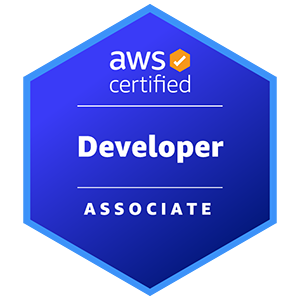
Introduction
In an era where data breaches and cyber threats are increasingly prevalent, organizations are turning to innovative solutions to bolster their security measures. Artificial Intelligence (AI) has emerged as a transformative technology in cloud security, providing advanced capabilities to protect sensitive data and ensure compliance with regulatory standards. This article delves into the impact of AI-driven cloud security, exploring its benefits, challenges, current trends, and future outlook. By understanding the nuances of AI in cloud security, organizations can better navigate the complexities of safeguarding their digital assets.
Understanding AI-Driven Cloud Security
What is AI-Driven Cloud Security?
AI-driven cloud security refers to the application of artificial intelligence technologies to enhance the security of cloud environments. This includes using machine learning algorithms, natural language processing, and predictive analytics to identify threats, automate responses, and improve overall security posture. By leveraging AI, organizations can analyze vast amounts of data in real-time, enabling them to detect anomalies and respond to potential threats more effectively than traditional security measures.
The Importance of Cloud Security
As businesses increasingly migrate their operations to the cloud, securing these environments becomes paramount. Cloud services offer numerous advantages, including scalability, flexibility, and cost-efficiency; however, they also introduce unique security challenges. Data breaches can lead to significant financial losses and reputational damage. According to a report by IBM Security, the average cost of a data breach in 2021 was $4.24 million. Therefore, implementing robust cloud security measures is essential for protecting sensitive information and maintaining customer trust.
The Role of AI in Enhancing Cloud Security
Threat Detection and Response
AI technologies excel at identifying patterns within large datasets. In cloud security, machine learning algorithms can analyze user behavior and system activities to detect anomalies that may indicate a security threat. For instance:
- Behavioral Analytics: AI can establish baselines for normal user behavior and flag deviations that may suggest compromised accounts or insider threats.
- Automated Incident Response: Once a threat is detected, AI systems can automatically initiate response protocols, such as isolating affected systems or alerting security teams.
Predictive Analytics
AI-driven predictive analytics enables organizations to anticipate potential threats before they materialize. By analyzing historical data and identifying trends, AI can help organizations proactively address vulnerabilities in their cloud environments.
- Vulnerability Management: AI tools can assess configurations and identify weaknesses that could be exploited by attackers.
- Threat Intelligence: Integrating external threat intelligence feeds with AI systems allows organizations to stay informed about emerging threats and adjust their defenses accordingly.
Enhanced Compliance
Regulatory compliance is a critical aspect of cloud security. AI can assist organizations in maintaining compliance with various regulations by automating monitoring and reporting processes.
- Automated Audits: AI systems can continuously monitor cloud environments for compliance violations and generate reports for regulatory bodies.
- Data Classification: AI can classify sensitive data based on predefined criteria, ensuring that appropriate security measures are applied.
Current Trends in AI-Driven Cloud Security
Increased Adoption of Machine Learning
Organizations are increasingly adopting machine learning algorithms to enhance their cloud security strategies. According to Gartner, by 2025, 60% of enterprises will use AI-enabled solutions for cybersecurity operations.
Integration with DevSecOps
The integration of AI into DevSecOps practices is gaining traction as organizations recognize the importance of incorporating security throughout the development lifecycle. By embedding AI-driven security tools into CI/CD pipelines, teams can identify vulnerabilities earlier in the development process.
Focus on Zero Trust Architecture
The Zero Trust model assumes that threats could exist both inside and outside the network perimeter. As organizations adopt this approach, AI plays a crucial role in continuously verifying user identities and access permissions.
Challenges in Implementing AI-Driven Cloud Security
Data Privacy Concerns
The use of AI in cloud security raises concerns about data privacy. Organizations must ensure that their AI systems comply with data protection regulations while effectively analyzing sensitive information.
Skill Gaps
There is often a shortage of skilled professionals who understand both AI technologies and cybersecurity principles. Organizations may need to invest in training or hire specialized talent to bridge this gap.
Integration Complexity
Integrating AI-driven solutions with existing cloud infrastructure can be complex. Organizations must ensure compatibility between various tools and platforms while minimizing disruption during implementation.
Future Outlook for AI-Driven Cloud Security
Evolving Threat Landscape
As cyber threats become more sophisticated, the role of AI in cloud security will continue to expand. Future advancements may include:
- Advanced Threat Detection: Improved machine learning models capable of identifying previously unknown threats through unsupervised learning techniques.
- Automated Remediation: Enhanced capabilities for automated incident response that not only detect but also remediate threats without human intervention.
- AI-Powered Risk Assessment: More refined risk assessment tools that leverage real-time data analysis to provide organizations with actionable insights into their security posture.
Increased Collaboration Between Humans and Machines
The future of cloud security will likely involve greater collaboration between human analysts and AI systems. While AI can automate routine tasks and analyze vast datasets quickly, human expertise will remain essential for making nuanced decisions regarding complex threats.
Conclusion
AI-driven cloud security represents a significant advancement in protecting sensitive data within increasingly complex digital environments. By leveraging machine learning algorithms and predictive analytics, organizations can enhance their threat detection capabilities, automate responses, and maintain compliance with regulatory standards.
As businesses continue to embrace cloud technologies, understanding the implications of integrating AI into their security strategies will be crucial for safeguarding their digital assets against evolving cyber threats. By addressing challenges related to data privacy, skill gaps, and integration complexity, organizations can unlock the full potential of AI-driven cloud security solutions.
In summary, the adoption of AI technologies in cloud security is not just a trend; it is becoming a necessity for organizations aiming to protect their data effectively in an ever-changing threat landscape.
Vidyasagar Vangala is an accomplished IT Project Lead with 10 + years of IT industry experience with a deep passion for technology and innovation. With extensive expertise in Cloud Technologies, AI Integration, and Automation, Vidyasagar has been at the forefront of driving transformative projects that deliver tangible business outcomes. His robust experience in DevOps engineering, cloud platforms like AWS and Azure, and Kubernetes showcases his ability to lead large-scale cloud migrations, develop AI-powered solutions, and implement advanced automation frameworks.
A strategic thinker and problem solver, Vidyasagar thrives on tackling complex challenges and delivering scalable, efficient solutions. His professional journey reflects a commitment to leveraging cutting-edge tools and methodologies to help organizations achieve agility and operational excellence. Whether it’s streamlining processes through DevOps practices or integrating AI to enhance business decision-making, Vidyasagar’s innovative mindset and leadership have consistently resulted in successful project deliveries.








